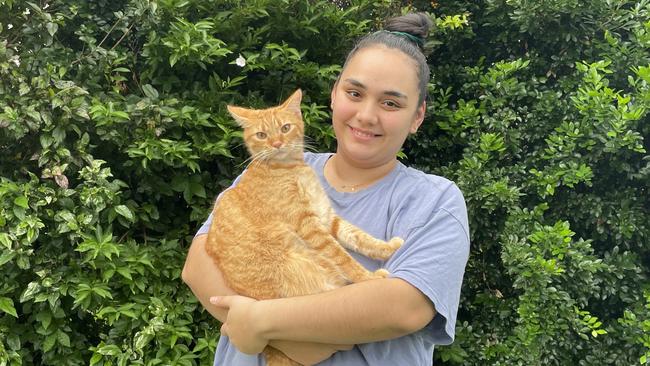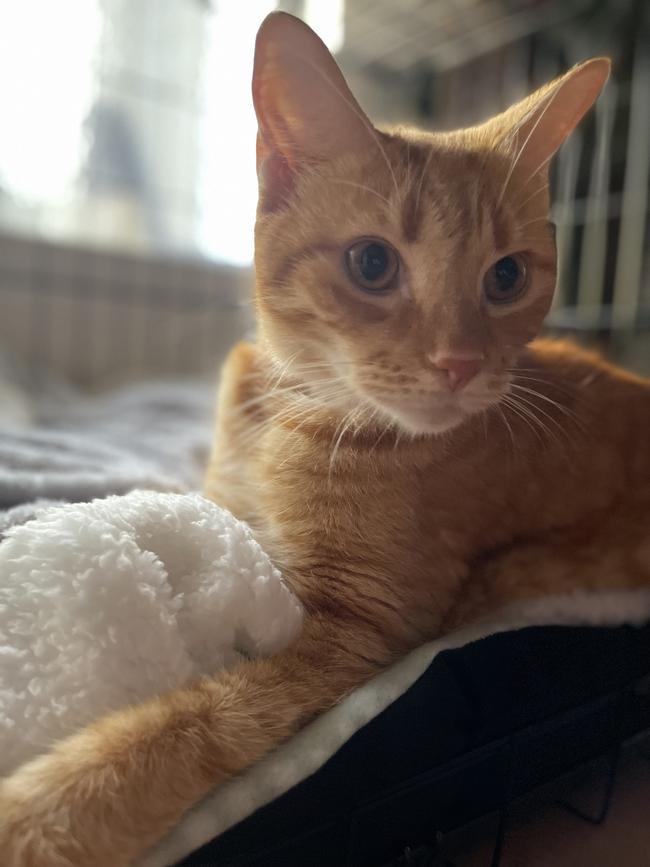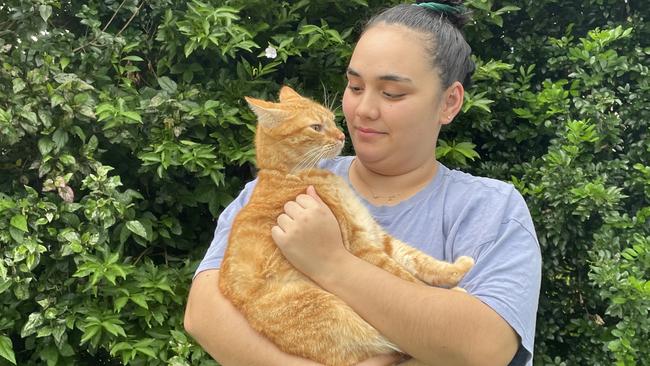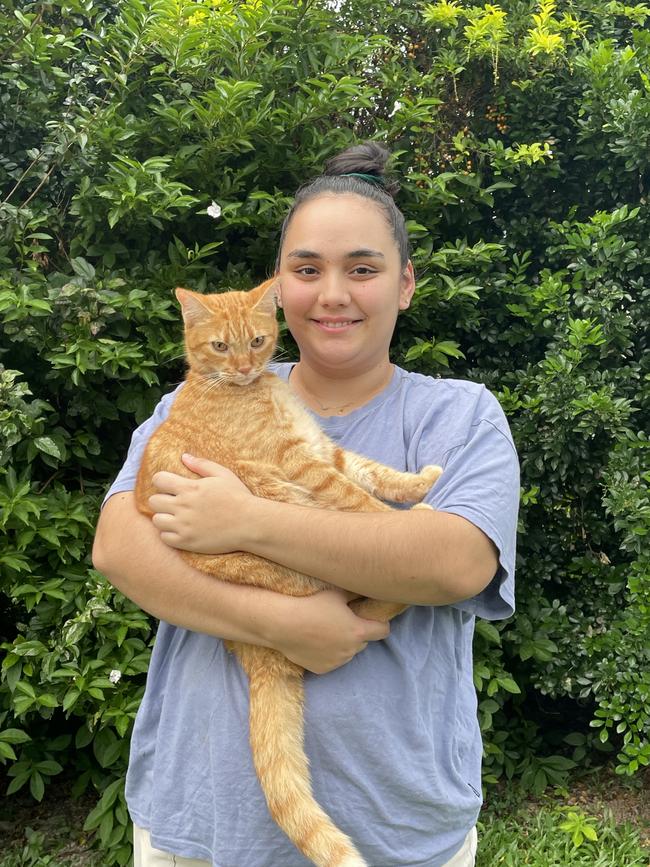Cairns cat, Milo, diagnosed with deadly soil-borne disease, melioidosis
A cat has been diagnosed with a deadly bacterial disease which has claimed the lives of 11 Far North Queenslanders this year. His road to recovery.

Cairns
Don't miss out on the headlines from Cairns. Followed categories will be added to My News.
A cat has been diagnosed with a deadly bacterial disease which has claimed the lives of 11 Far North Queenslanders this year.
Two-year-old Milo, an indoor tabby cat, was diagnosed with melioidosis, a bacteria-borne disease found in soil, earlier this month.
Owner Tiara Richardson said Milo contracted the disease after escaping from the house.
“He’s an indoor cat, but sometimes he, unfortunately, gets out and, in one of those cases, he picked up melioidosis,” Ms Richardson said.

Ms Richardson said she took Milo to the vet after he became lethargic and his appetite decreased.
“He lost a lot of weight and wasn’t grooming himself, so he was a bit scruffy,” she said.
“Usually he’s quite playful and energetic.”
The vet prescribed a round of antibiotics, and when that didn’t work, ordered blood and urine tests, which came back positive for melioidosis.
“They put him on a broad spectrum antibiotic which has worked well, so he’s eating normally and playing, but he has to be isolated from our other cat because he’s a contamination risk,” she said.

“The vet believes he stood in the soil, licked his paws, then his groin and now it’s presented as a UTI.”
Despite Milo’s positive reaction to the treatment, Ms Richardson, a full-time nursing student at James Cook University, said he still had a long way to go.
“Melioidosis has a high risk of abscess like fissure in (cat’s) organs so I’ll have to pay for a CT scan, which is about $3000 to rule that out,” she said.
“If it’s all clear, he’ll be on antibiotics for months and there’s still only a 50/50 chance he’ll make it through, unfortunately.”
JCU Senior lecturer of veterinary infectious disesases Jackie Picard said most animal veterinary practices across the Far North had reported melioidosis cases in cats and dogs this year.

“Over the years, I have diagnosed numerous cases of melioidosis in animals,” Dr Picard said.
“(The bacteria) can enter wounds, be inhaled, or ingested.”
She said most dogs and cats develop skin ulcers and abscesses, however if abcesses form on vital organs, it could be fatal.
“Unfortunately, some pets may develop abscesses in various parts of their bodies, such as the lungs, liver, spleen, and even the brain. If not treated promptly, some pets may die,” she said.
“Treating melioidosis is lengthy and requires potent antibiotics and sometimes surgery.”

With no vaccines available to prevent melioidosis, Dr Picard said avoiding contact with muddy soils, rivers, and billabongs during heavy rains in summer was crucial.
“Any injuries should be treated immediately and kept dry, away from soil and muddy water,” she said.
“It is also important to bring any pets with a fever or large wounds to your veterinarian for a check-up. The sooner melioidosis is treated, the better.”
A GoFundMe page has been set up to help Ms Richardson with medical costs.
Cairns and Hinterland Hospital and Health Service confirmed there had been 104 (human) melioidosis cases and 11 deaths in the region as of Sunday, April 21, 2025.
Originally published as Cairns cat, Milo, diagnosed with deadly soil-borne disease, melioidosis




